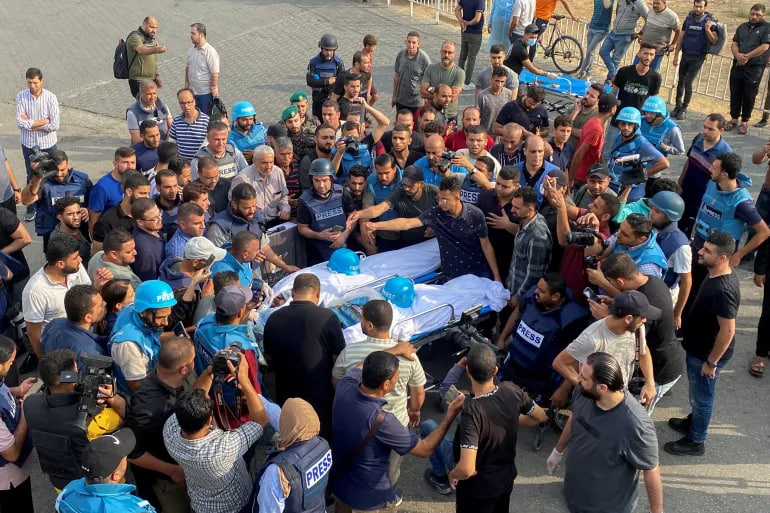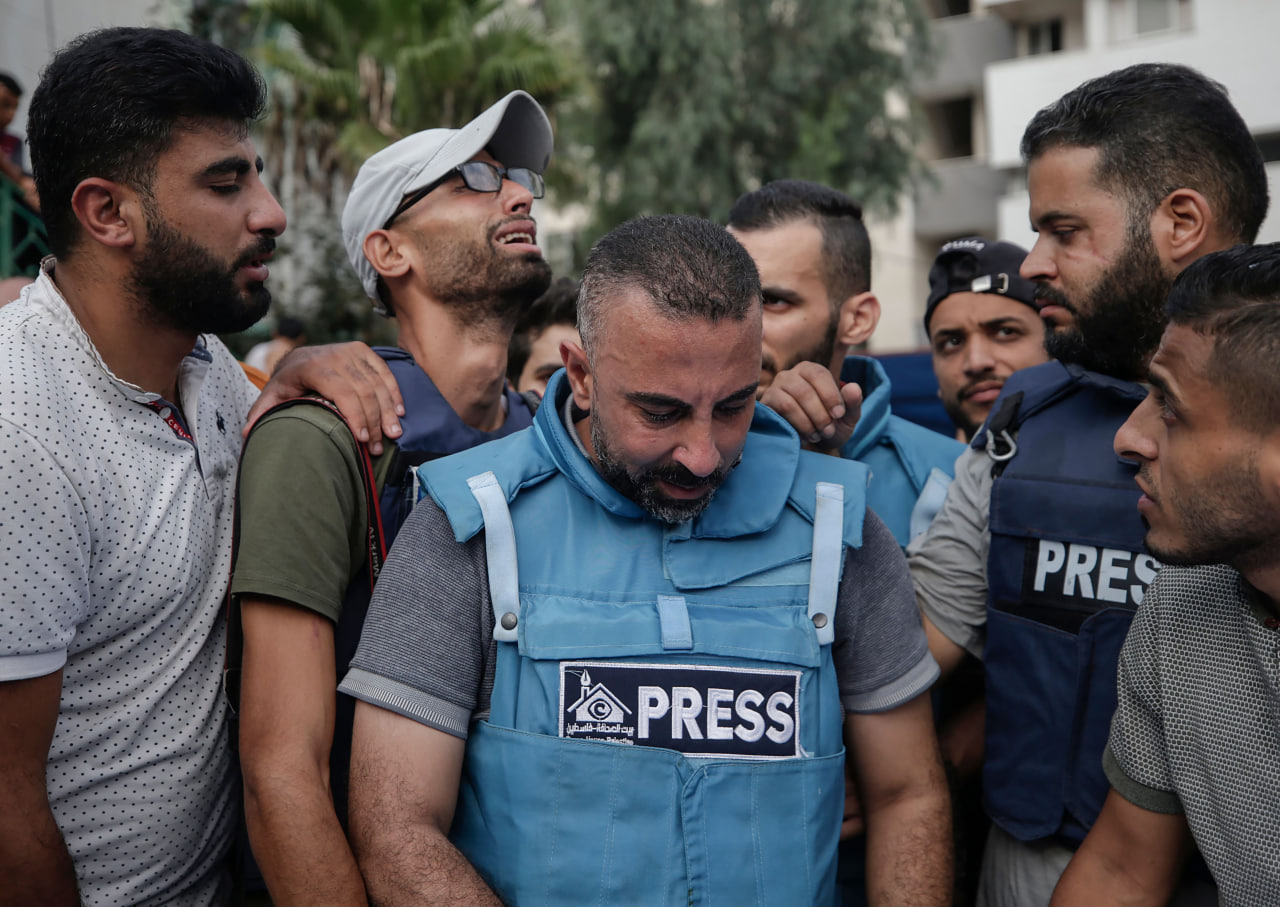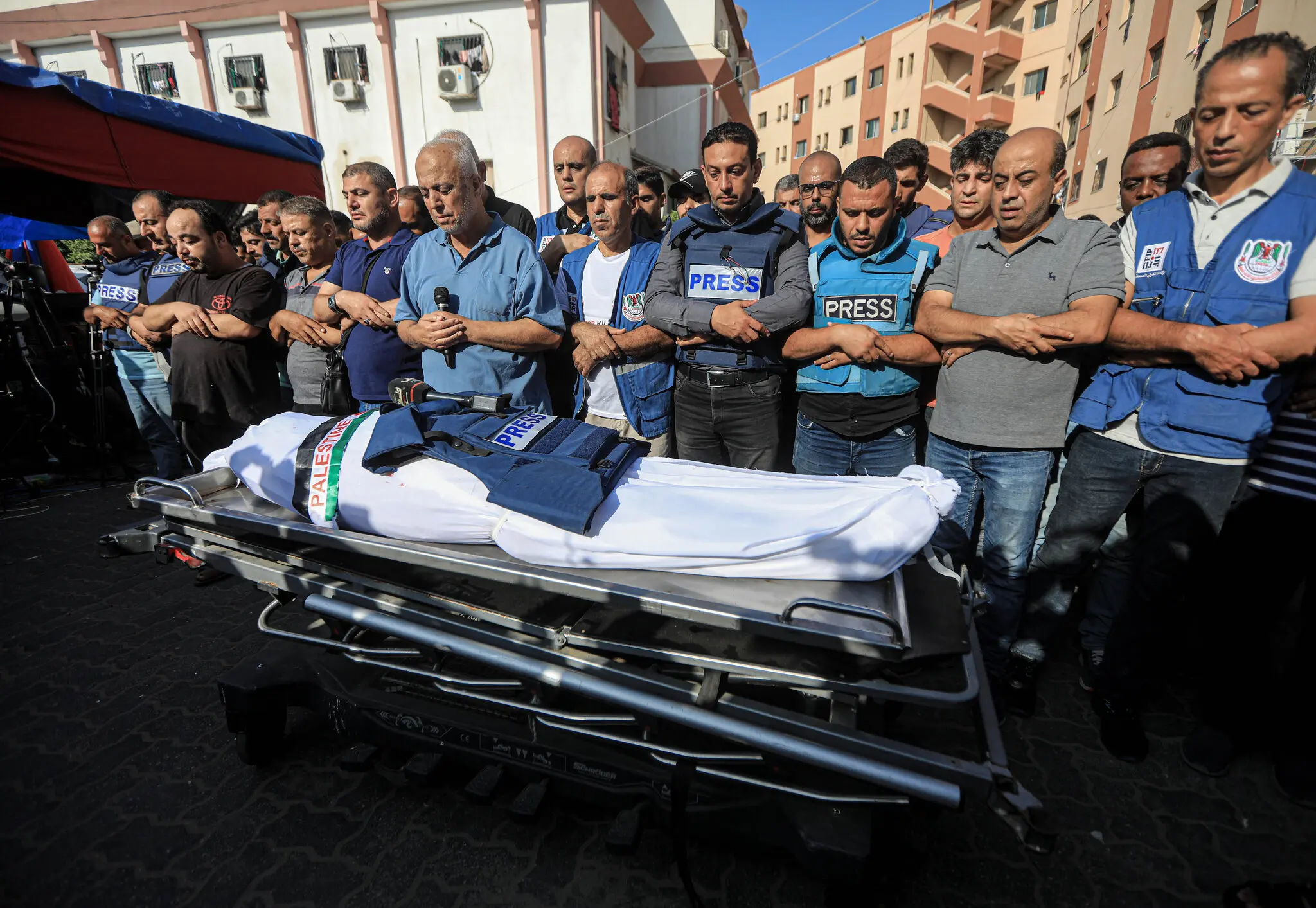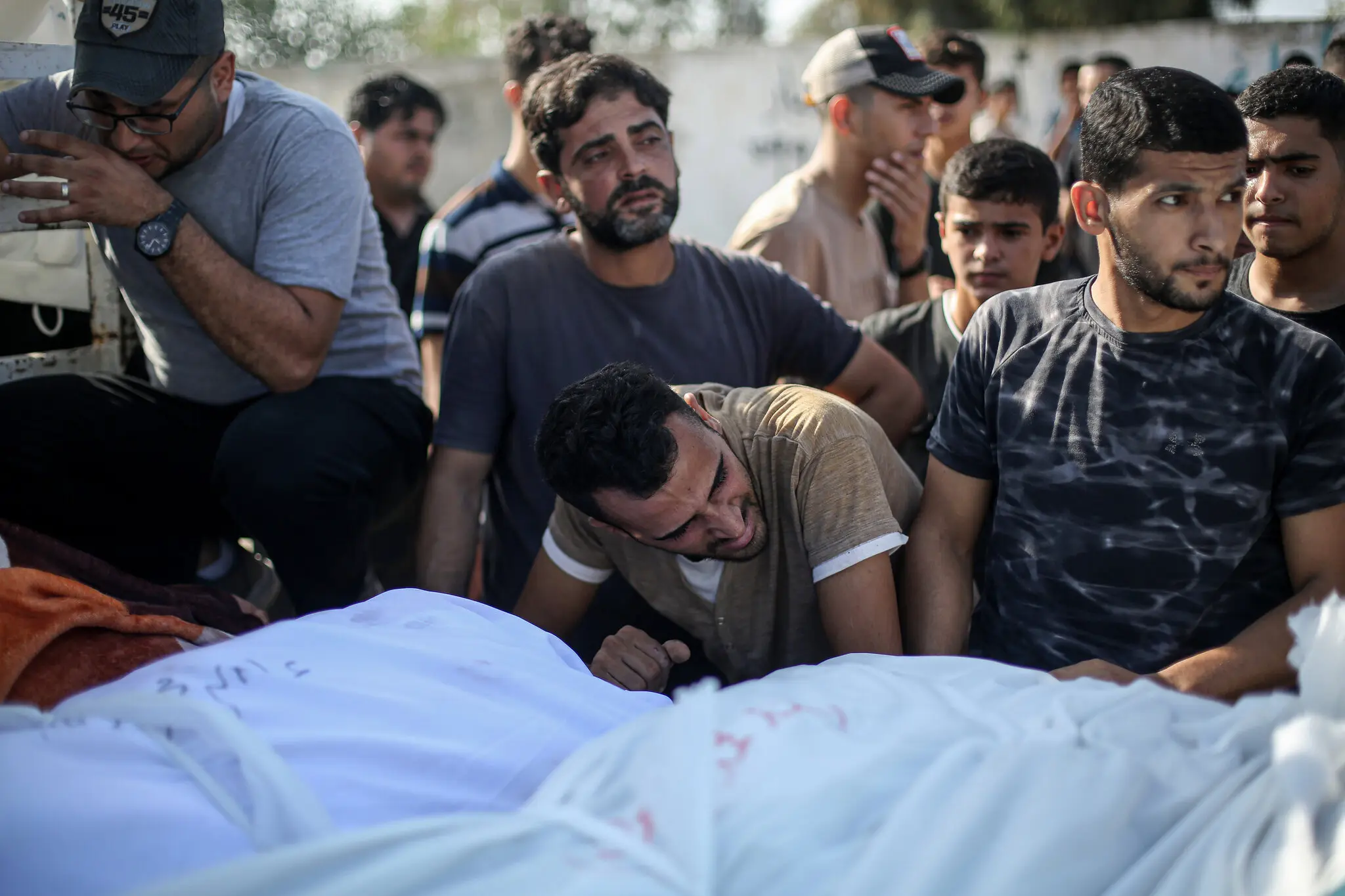Mohammed Abu Hatab, a reporter working for a Palestinian TV channel, and 11 members of his family met a tragic end in Khan Younis, located in southern Gaza, on November 2, NYT reports. Palestine TV, an organization under The Palestinian Authority's administration and Mr. Abu Hatab's workplace, reports that they lost their lives due to an Israeli airstrike that struck their home. However, the Israeli military released a statement on November 3 night, stating that after a review, they had no knowledge of any military activities conducted by their forces near the location in question.

Wafa, the official Palestinian news agency, reported that among the deceased were Mr. Abu Hatab's wife, son, and brother.
The Committee to Protect Journalists disclosed that this Israel-Hamas conflict has seen more media workers lose their lives than any other conflict in the region since they began tracking such data in 1992. As of November 3, a total of 36 media workers—31 Palestinians, four Israelis, and one Lebanese—had been killed since Hamas initiated its attack on Israel on October 7, as per the group.

Photographs displayed individuals sifting through the rubble of the family's home on November 2 and 3, revealing remnants of their everyday life. At Mr. Abu Hatab's funeral on November 3, a gathering of relatives, friends, and fellow journalists wept and offered prayers over his shrouded body. Resting on his casket were a blue flak jacket and a microphone. One of his colleagues at Palestine TV, Salman Al-Bashir, delivered a tearful on-air tribute to him on November 2, which the network also shared on social media. Speaking from the Nasser Hospital morgue, Mr. Al-Bashir removed his press vest and helmet while his voice broke, expressing his sorrow that even protective gear, labeled with "Press" in blue capital letters, couldn't safeguard journalists' lives.

An initial investigation conducted by Reporters Without Borders, a media watchdog group, and released on October 30, found that Issam Abdallah, a visual journalist for Reuters who was killed on October 13, had been "targeted" by a strike that the group claimed originated from the Israeli border. The Israeli army stated that they were reviewing the incident and highlighted the severe life risk associated with being close to combat zones.
Last week, in a letter addressed to Reuters and Agence France-Presse news agencies, the Israeli military stated its inability to guarantee the safety of reporters in Gaza, citing the proximity of Hamas's military operations to civilians and journalists. Journalists covering the harrowing events of the ongoing war in Gaza have had to grapple with the distressing possibility of losing their own lives or their families. Wael al-Dahdouh, Al Jazeera's Arabic-language service's Gaza bureau chief, received the news while on the job that several of his family members had been killed, as reported by the news organization.

On October 25, while reporting live from Gaza City, Mr. al-Dahdouh learned that at least four relatives had lost their lives due to what Al Jazeera's parent company described as an Israeli airstrike on the Nuseirat refugee camp in central Gaza, where they had been seeking refuge. He allowed Al Jazeera's cameras to capture the heart-wrenching scene as he stood by some of their bodies in the morgue of a local hospital.
Follow Daryo's official Instagram and Twitter pages to keep current on world news.
Comments (0)